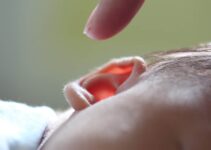If you have a child with an autism spectrum disorder, you may have found yourself exploring or including dietary and alternative therapies as part of your child’s treatment plan.
Families of children with autism oftentimes use some form of complementary and alternative medicine in creating a holistic and well-rounded treatment plan for their child. Up to 88% of families have reported using an alternative therapy, and up to 25% of families have used a special diet in their treatment plan for their child with autism[6].
Complementary and alternative approaches can be used along with conventional therapies (like behavioral therapy) when treating children with autism, but scientific evidence has not proven some of these modalities effective, and there are others that have risks.
Table of Contents
Theories
There are many theories involving why special diets or alternative therapies are oftentimes used. It is important to note that none of the following causes have been validated through scientific evidence as a cause of ASD, so many of these therapies are not considered effective therapies.
Nevertheless, some believe that the following may contribute to the pathogenesis of autism:
Gastrointestinal abnormalities, such as abnormal gut flora or “leaky gut”
- This has led some to use secretin and probiotics.
Food sensitivities and allergies
- Some use special diets, such as the gluten-free and/or casein-free diets
Autoimmunity
- Prompting the use of immunotherapy
Metabolic abnormalities (eg, in glutathione synthesis, sulfation, folate metabolism)
- Prompting the use of antioxidants
Heavy metal toxicity, especially mercury
- Prompting the use of chelation therapy
Nutritional imbalances
- Prompting the use of nutritional supplements (eg, omega-3 fatty acids, vitamin B6, and magnesium vitamins)
Inflammation
- Prompting “anti-inflammatory diets”
What does the research suggest? Let’s explore that here:
Gluten-free, casein-free diet

This is postulated to cause “excessive opioid activity,” resulting in behaviors observed in ASD. However, it is important to note that children with ASD have neither increased rates of celiac disease nor excessive amounts of opioid-like compounds in their urine[5].
What does the evidence say?
Many of the studies reviewing the link between a gluten-free or casein-free diet and the effects on ASD symptoms are small, biased, or have other problems in the study design. In a 2017 systematic review, only one randomized trial was determined to be at low risk of bias.
In that trial, 14 children age 3-5 years with ASD completed the study having received a strict, nutritionally monitored GFCF diet for four to six weeks. They also received intense behavioral therapy. Dietary challenges did not affect physiologic functioning, behavior problems, or autism symptoms.
However, this was a very small study, so as with any small study, it is difficult to make any assumptions about the findings, or to generalize it to the general public. Many parents report that their child’s behavioral symptoms improve on this diet.
In general, however, there is not much scientific evidence to support placing children with ASD on a gluten-free, casein-free diet.
Risks?
There are risks associated with a gluten-free, casein-free diet if special attention is not given to making sure that the child receives a well-rounded, nutritionally complete diet. Strict adherence to the diet may be difficult, and nutritional deficiencies can result, including calcium, vitamin D, and amino acid deficiencies. Thus, we always counsel families to supplement these if their child is on this diet.
It is also important to note that rice milk, almond milk, cashew milk, and other nut milks are not sufficient sources of protein, so you will need to make sure your child is receiving adequate protein from other sources.
Final thoughts on a gluten-free, casein-free diet
Currently, there is no evidence to suggest that a gluten-free, casein-free diet improves the core features of ASD. However, many families feel that their child’s symptoms do improve when on this diet. If you chose to follow this diet, it is important to supplement your child’s diet with the necessary vitamins to avoid nutritional deficiencies.
Vitamin B6 and Magnesium
Some families believe that vitamin B6 and magnesium supplementation can help with the core symptoms of ASD. This is due to the long history of using these supplements as part of a treatment plan for other mental health disorders.
What does the evidence say?
Although vitamin B6 and magnesium may help with other psychiatric disorders, there are few high-quality studies that have been conducted with specific regard to children with ASD. A 2010 systematic review of three small and methodologically flawed randomized trials (total of 33 patients) found the evidence inconclusive[4].
However, 11 smaller studies demonstrated symptom improvement in children taking B6, and showed that these children with autism had improvements in sleep and GI pain as well, both of which are common in ASD.
Risks?
There are risks associated with excess vitamin B6 ingestion, especially when given in high doses. As a matter of fact, magnesium was added to the vitamin B6 regimen in order to prevent side effects associated with the B6 itself. Large doses of vitamin B6 (>100 mg/day) may result in neuropathy.
Final thoughts on Vitamin B6 and Magnesium
At this time, there have been few studies testing this association in children with autism. In smaller studies, B6 did seem to improve some of the core features of ASD, along with associated physical problems including sleep dysfunction and GI disturbances.
However, these studies have been small and some have been flawed in their design, so it is important to interpret these results cautiously. Vitamin B6 has the risk of neuropathy (so magnesium is added to counteract these effects), so talk to your doctor about this remedy.
Vitamin D supplementation and homeopathic remedies
Some families use homeopathic remedies that are sold over the counter or vitamin D supplementation because of some theories that ASD may be due, in part, to vitamin or nutritional imbalances. However, as stated above, this has not been proven to be the case.
What does the evidence say?
Neither vitamin D nor any homeopathic remedies have been proven to have a positive effect on the symptoms of ASD. In a small study, vitamin D did not improve core symptoms of ASD[3].
Risks?
There are risks to both vitamin D and homeopathic remedies.
Excess vitamin D can be dangerous. Symptoms can include confusion, anorexia, vomiting, and muscle weakness. Chronic excess may cause kidney stones, bone demineralization, and generalized pain.
Homeopathic remedies may contain toxic ingredients, because these supplements are not regulated by the FDA. Thus, there is no rigorous testing done on these remedies to ensure the quality or safety of the ingredients in them. Doses of supplements can vary from bottle to bottle, even when measuring from the same company, so caution should be exercised when using them.
Final thoughts on vitamin D and homeopathic remedies
There is currently no evidence to suggest that vitamin D or any homeopathic remedies improve symptoms of ASD. Further, there are risks associated with both, including confusion, GI disturbances , i.e. anorexia and vomiting, weakness, and issues with possible toxic contamination in unregulated bottles of these remedies.
Sulforaphane
Sulforaphane is an antioxidant derived from broccoli sprout extracts. It increases the activity of genes that protect cells against oxidative stress, inflammation, and DNA damage (Zhang Y, Kensler TW, Cho CG, Posner GH, Talalay P ).
Some families use it due to the hope that it can reverse neural abnormalities associated with ASD. Specifically, it is hypothesized to target neuroinflammation, oxidative stress, and decreased glutathione synthesis, mitochondrial function, and oxidative phosphorylation.
What does the evidence say?
It may help with symptoms of ASD. One study assessed whether sulforaphane had any effect on ASD, and interestingly, it did appear to do so.
The study evaluated adolescent boys for 18 weeks. During treatment, sulforaphane recipients were found to have demonstrated improved behavior compared with baseline as assessed by parents and clinicians on the Aberrant Behavior Checklist, Social Responsiveness Scale, and Clinical Global Impression Improvement Scale.
Interestingly, when sulforaphane was discontinued, behavior returned to baseline[8]. The problem here is that this study was too small to extrapolate the findings to the larger population of children with ASD.
There were only 44 kids included in this study. However, more studies are on the way, because it did seem to demonstrate some promising results. Talk to your doctor if you have questions about this therapy option.
Risks?
Sulforaphane appeared to have been well-tolerated in the above study. In 2 boys with a history of seizures, it did seem to provoke a single seizure.
Final thoughts on sulforaphane
Evidence suggests that sulforaphane may improve the symptoms of ASD while children are taking it. The largest study assessing this link was still small, so further studies are needed to determine if this relationship truly exists.
There seem to be few risks, unless your child has a history of seizures. In these children, it may lower the seizure threshold and lead to a seizure, but this also needs to be studies further.
Omega-3 Fatty Acids

What does the evidence say?
Studies have concluded that omega-3 fatty acid supplementation does not improve core symptoms of ASD or symptoms associated with ASD. But, it is not likely to be harmful[7].
Risks?
Common side effects of omega-3 supplementation include nausea and diarrhea. No major side effects were reported in the studies of omega-3 supplementation for ASD Omega-3 fatty acid supplementation should be used with caution in patients with bleeding disorders or sensitivity to fish.
Final thoughts on Omega-3 Fatty Acids
There is no evidence to suggest that omega-3 fatty acids helps with symptoms of ASD. However, it is a low risk remedy with few side effects. The most common side effects are nausea and diarrhea, although people with bleeding disorders or fish allergies should also take precautions.
Probiotics
Probiotics are hypothesized to address an imbalance of intestinal microbes in individuals with ASD.
What does the evidence say?
There have been no studies to determine if probiotics help with the core symptoms of ASD.
Risks?
Probiotics are unlikely to be harmful. However, the FDA’s regulation of these products depends on how they are categorized. Those that are regulated less intensely (because they are labeled as a supplement, for example) may contain unlabeled ingredients or species.
Final thoughts on probiotics
There is no evidence that probiotics help with symptoms of ASD. However, probiotics are a low risk remedy, with few, if any, side effects. If possible, try to take probiotics as naturally as possible (like in Greek Yogurt) as opposed to supplements, which are not regulated and may contain unlabeled ingredients.
Vitamin C/B12
Vitamin C is an antioxidant that is postulated to combat oxidative stress and impaired methylation and glutathione seen in autism. B12 is thought to function similarly.
What does the evidence say?
Vitamin C and vitamin B12 might help. In a study that lasted 30 weeks, high doses of vitamin C were found to be associated with a reduction in autism severity as measured by the Ritvo-Freeman scale. In another study, B12 was found to improve methylation, glutathione, and oxidative stress.
However, it is unclear if this translates to symptomatic improvement. More studies are needed to address this relationship because the studies have been small2.
Risks?
There are few risks of supplemental B12 or vitamin C if given in appropriate doses.
Vitamin C overdoses can cause nausea and diarrhea.
Vitamin B12 can cause high blood pressure, rashes, and itchy skin. Do not give your child more than the normal recommended dose for his age or as prescribed from your doctor.
Final thoughts on Vitamin C and Vitamin B12
Current evidence suggests that vitamin C and vitamin B12 may be associated with a reduction in autism severity. They are unlikely to be harmful if given in appropriate doses, but side effects can include nausea, diarrhea, elevated blood pressure, and rashes.
Exercise
It is important to remember that a healthy, well-balanced lifestyle is essential for the emotional and psychological development of any child, including those with autism. This includes:
- a healthy, well-rounded diet
- regular exercise
- routine and adequate sleep
- stress management
- supportive social and familial environments
- avoidance of neurotoxins
What does the evidence say?
Exercise helps with core symptoms of ASD. For example, in a large study, an exercise program using stationary bicycles was associated with improved emotional and behavioral self-regulation and classroom functioning in over 100 children with behavioral disorders[1].
Of note, 40% of these children were diagnosed with autism, so this speaks to the power of ensuring your child is getting adequate exercise as part of his or her developmental curriculum, especially if they have been diagnosed with an ASD.
Risks?
There are few, if any, risks associated with exercise in children with autism. Of course, it is important to make sure that your child is otherwise healthy, and that any other chronic medical problems like asthma are under control. Injury is always a risk of physical activity, but the benefits far outweighs risks.
Talk to your doctor to make sure that your child is medically cleared for exercise and sports.
Final thoughts on exercise
Evidence shows that consistent exercise can help with core symptoms of ASD, and lead to improvement in emotional and behavioral self-regulation. There are few risks of safe and regular exercise, but make sure your doctor clears your child from any other medical issues before starting an exercise regimen.
Secretin
Secretin is a gastrointestinal hormone that is sometimes used in ASD. Some believe that it may help with the core features of autism because of the theory that ASD may be due to GI pathology or dysfunction.
What does the evidence say?
Currently, there is no evidence to suggest that GI abnormalities are the cause of autism, or that secretin works. A large 2012 scientific review that included 16 randomized controlled trials involving >900 children found no evidence that secretin improves the core features of autism (Williams K, Wray JA, Wheeler DM).
Risks?
No serious side effects were reported.
Final thoughts on secretin
Secretin is not recommended as an alternative therapy for children with ASD. Current evidence does not demonstrate that it helps with any of the symptoms of ASD. There were no major side effects reported in the large trials of children with autism who were trialed on secretin.
Low Risk Therapies
There are other therapies and interventions which are low risk and may have some benefit with symptoms of ASD. If you are interested, ask your child’s doctor about the following:
- Music therapy
- Therapeutic horse back riding
- Melatonin
- Oxytocin
- Animal/pet therapy
- Mindfulness therapies
Final thoughts
Autism is a neurodevelopmental disorder with unknown causes and no known cure at this point. The only evidence-based therapy that has been tested and proven to improve core features of autism is behavioral therapy, but, understandably, many families chose alternative and complementary therapies as adjunctive tools in their child’s treatment plan.
It is very important to discuss any therapies you are using with your doctor, so that he or she can take those into consideration when prescribing other treatments, and also so that your child can be monitored for side effects.
It is important to remember that most alternative therapies can be safely integrated into your child’s plan, so please ask your doctor about any complementary modalities you are interested in, so you can come up with an effective, achievable plan for you and your child.
References
- Bowling A, Slavet J, Miller DP, et al. Cybercycling Effects on Classroom Behavior in Children With Behavioral Health Disorders: An RCT. Pediatrics 2017; 139.
- Culter, Jernigan. Metabolic biomarkers of increased oxidative stress. SJ James. 2004
- Kerley CP, Power C, Gallagher L, Coghlan D. Lack of effect of vitamin D3 supplementation in autism: a 20-week, placebo-controlled RCT. Arch Dis Child 2017; 102:1030.
- Murza KA, Pavelko SL, Malani MD, Nye C. Vitamin B6-magnesium treatment for autism: the current status of the research. Magnes Res 2010; 23:115.
- Pavone L, Fiumara A, Bottaro G, et al. Autism and celiac disease: failure to validate the hypothesis that a link might exist. Biol Psychiatry 1997; 42:72.
- Perrin JM, Coury DL, Hyman SL, et al. Complementary and alternative medicine use in a large pediatric autism sample. Pediatrics 2012; 130 Suppl 2:S77.
- Sathe N, Andrews JC, McPheeters ML, Warren ZE. Nutritional and Dietary Interventions for Autism Spectrum Disorder: A Systematic Review. Pediatrics 2017; 139.
- Singh K, Connors SL, Macklin EA, et al. Sulforaphane treatment of autism spectrum disorder (ASD). Proc Natl Acad Sci U S A 2014; 111:15550.
- Sliwinski S, Croonenberghs J, Christophe A, et al. Polyunsaturated fatty acids: do they have a role in the pathophysiology of autism? Neuro Endocrinol Lett 2006; 27:465.










